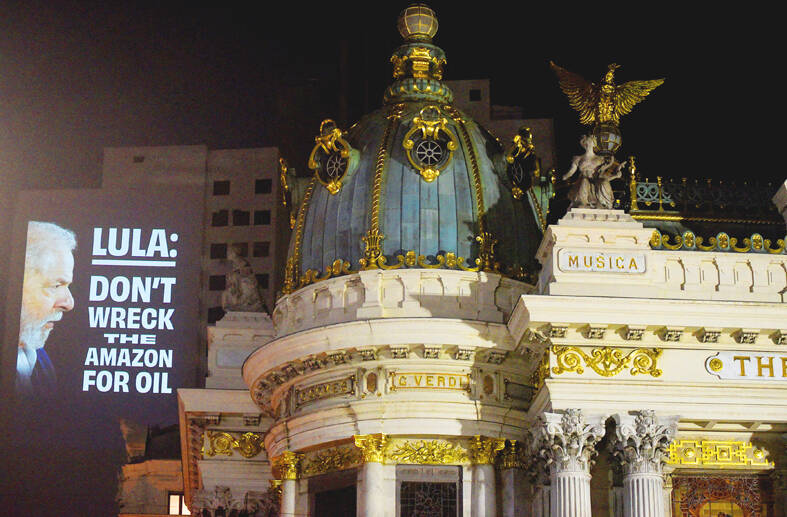Listen to the article
A surge in AI-generated climate disinformation is threatening to undermine COP30, according to a comprehensive new report released by climate watchdog organizations. The findings reveal how artificially created content is distorting public perception ahead of the critical UN climate summit in Belém, Brazil.
The Coalition Against Climate Disinformation (CAAD) documented a staggering 267 percent increase in climate-related falsehoods between July and September, identifying more than 14,000 examples of misleading content specifically targeting the upcoming climate conference.
One particularly concerning example involves an AI-generated video purporting to show catastrophic flooding in Belém, the Amazonian city preparing to host the global climate summit. According to researchers at the Observatory for Information Integrity who analyzed the content, “The reporter doesn’t exist, the people don’t exist, the flood doesn’t exist, and the city doesn’t exist.”
Despite being flagged to TikTok by researchers, the platform has not removed the deceptive video, which fails to disclose its AI origins. This inaction highlights growing concerns about social media companies’ ability or willingness to effectively moderate synthetic content that could influence public opinion on climate policy.
Other examples of misleading content included videos suggesting Belém would be unsuitable as a conference venue. Investigators found that some footage was actually filmed in Tbilisi, Georgia, while other videos recycled two-year-old footage from unrelated incidents.
These fabrications represent just the tip of a larger disinformation iceberg that has been growing throughout the year. In another notable incident earlier this year, Agence France-Presse investigated a document falsely attributed to Elon Musk’s “Grok 3” AI system that attempted to discredit climate models developed by the Intergovernmental Panel on Climate Change, the world’s leading scientific authority on climate science.
The report comes at a time when public support for climate action is actually quite strong. Research indicates that more than 80 percent of people globally want stronger measures to address climate change, with 69 percent expressing willingness to contribute 1 percent of their monthly income toward such efforts.
However, this widespread support remains largely invisible in public discourse. The report found that both attendees of the UN Environment Assembly and the general public significantly underestimate this collective willingness to take action.
“This is the impact of climate disinformation,” CAAD stated in their report. “Big Carbon’s spending and Big Tech’s algorithms are preventing us from seeing and hearing one another online. Instead, we’re exposed to one lie after another.”
The findings raise troubling questions about how synthetic media might be weaponized to influence public opinion on climate policy just as world leaders prepare to gather for critical negotiations. With AI tools becoming increasingly accessible and sophisticated, distinguishing fact from fiction requires growing vigilance from platforms, policymakers, and the public alike.
Climate experts have long warned that disinformation represents a significant barrier to implementing effective climate policies. The emergence of AI as a tool for creating convincing but false content adds a new dimension to this challenge, potentially slowing momentum for climate action at a time when scientists say rapid decarbonization is urgently needed.
As COP30 approaches, the report’s authors are calling for greater transparency from social media platforms, stronger content moderation policies specifically addressing synthetic media, and increased public awareness about the proliferation of AI-generated climate disinformation.
Fact Checker
Verify the accuracy of this article using The Disinformation Commission analysis and real-time sources.




14 Comments
Manipulating public perception through AI-generated falsehoods is a disturbing trend. Transparent and credible climate information should be the priority, not sensationalized misinformation.
Absolutely. We can’t let these disinformation campaigns derail important climate negotiations and policy decisions.
It’s alarming to see the scale of AI-driven climate disinformation ahead of COP30. Rigorous fact-checking and public education will be crucial to countering these attempts to sow confusion and doubt.
The use of AI to generate climate disinformation is a worrying tactic that must be swiftly addressed. Maintaining public trust in climate science and the COP30 process is vital.
The use of AI to spread climate misinformation is a worrying development that could undermine the COP30 summit. Rigorous fact-checking and public education efforts will be essential.
This is a disturbing trend that undermines climate action. Rigorous fact-checking and public awareness campaigns will be essential to counter these AI-driven disinformation tactics ahead of COP30.
This is a troubling development that could undermine progress on climate action. Vigilance and a commitment to truth-telling will be essential in the lead-up to the COP30 summit.
I hope the organizers and attendees of COP30 are well-prepared to address and debunk this kind of disinformation campaign.
The scale of AI-generated climate disinformation leading up to COP30 is very concerning. Maintaining public trust in climate science and the negotiation process will be critical.
Absolutely. Transparency and accountability from all stakeholders will be key to addressing this threat.
This is deeply concerning. Using AI to generate climate disinformation undermines efforts to address the real threats we face. Fact-checking and accountability will be critical to counter these deceptive tactics ahead of COP30.
I agree. Social media platforms need to step up and remove this kind of misleading content more aggressively.
Deceptive AI-powered content is a serious threat to informed climate policy and action. Strengthening digital media literacy and fact-checking efforts will be crucial in the lead-up to COP30.
Agreed. Social media platforms have a responsibility to be more proactive in removing this kind of misleading content.